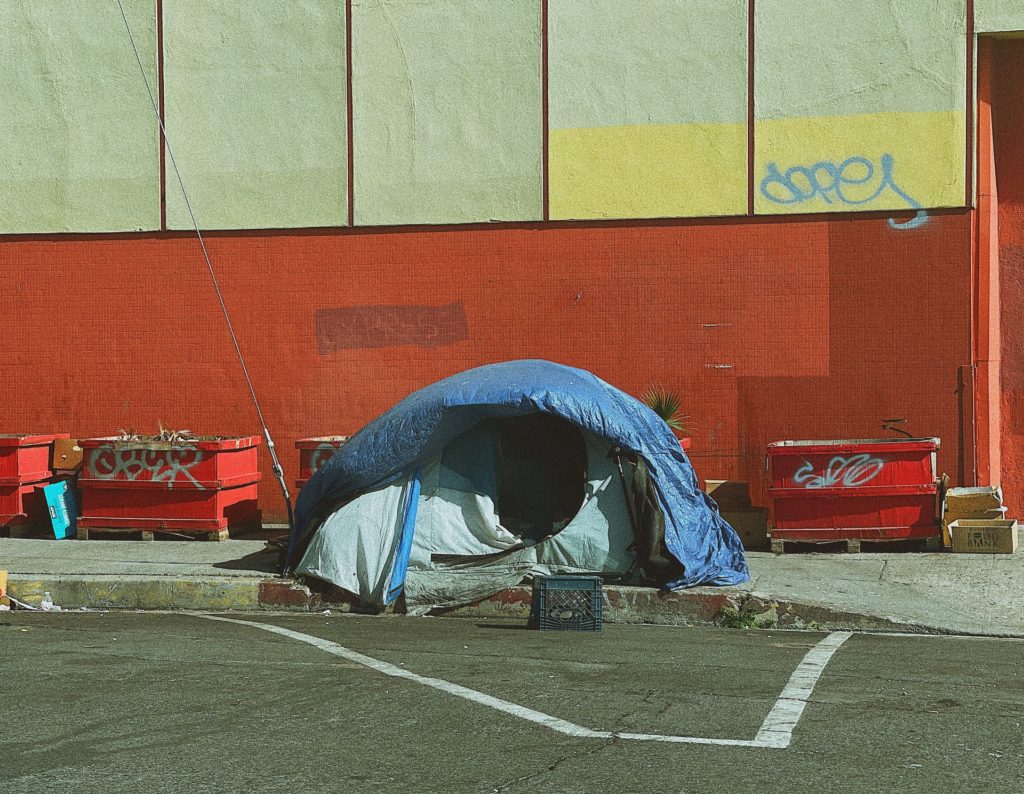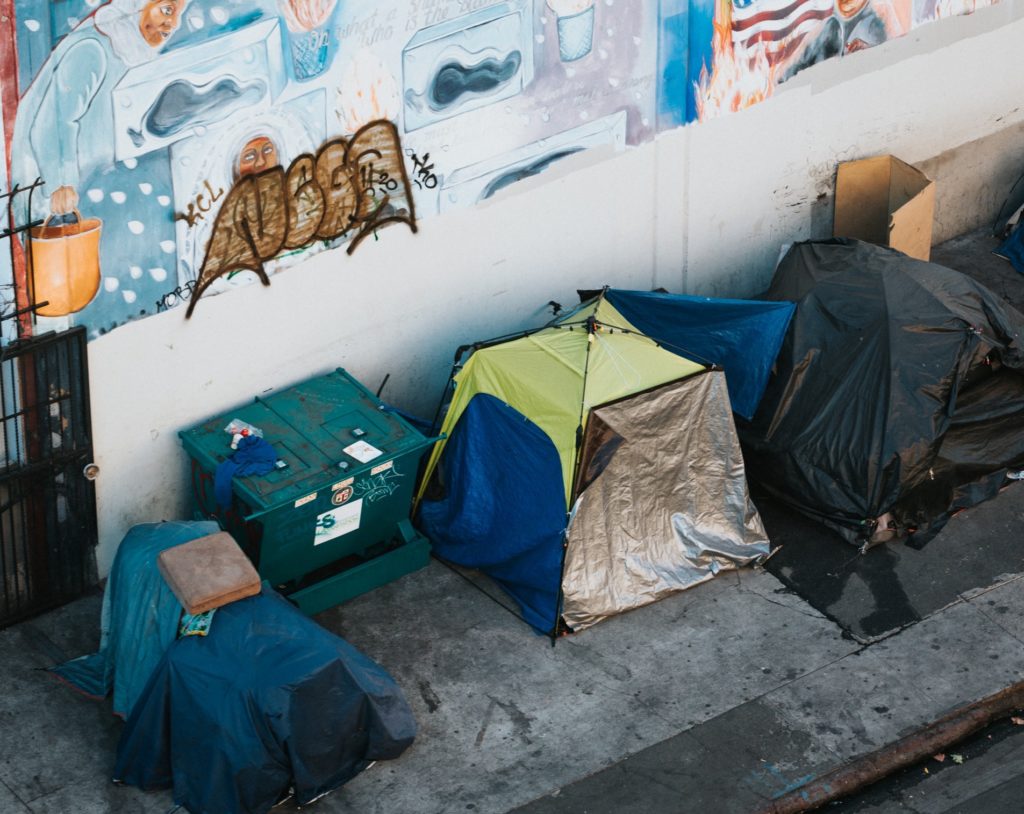Homelessness in America: Up Close and Personal
Leannahollis.com is a participant in the Amazon Services LLC Associates Program, an affiliate advertising program designed to provide a means for sites to earn advertising fees by advertising and linking to amazon.com. This blog post contains affiliate links, which means if you click on the link to make a purchase, I may make a small amount of money (usually a few cents) from your purchase. It will not increase the price you pay in any way. How to Effectively Impact Homelessness in America The glamour of a vintage evening gown, a coveted award, and a luxury hotel faded in the rearview mirror as the blinding rain slowed my progress toward home. My snail’s pace through the storm left far too little time to swap suitcases, snuggle dogs, and nap before boarding a plane for Los Angeles, land of Hollywood and movie stars, and a heartbreaking example of homelessness in America. From Rodeo Drive to Skid Row Maseratis lined the streets of Rodeo Drive. Both men and women in designer clothing spent thousands to purchase baubles they’ll soon discard. This trip, however, wasn’t filled with glamour, but the exact opposite. We headed to Skid Row where homelessness abounds, and hunger, need, and lack of basic hygiene are part of everyday existence. Fifty-four city blocks of tragedy and poverty are lined by tents on the sidewalks, pallets of cardboard, and discarded humans whose hope is gone. On Skid Row, mere miles from the mansions of the rich and famous, pregnant women sleep on bare concrete and shuffle down the streets in worn-out, discarded clothing hoping for a handout. Men, plagued by addiction, loss, and both mental and physical illness, wander as if in a fog. No job. Pockets empty. Hope long gone. One of the most affluent neighborhoods in the Los Angeles area is Hidden Hills, where the median income is $250,000+/year. In stark contrast, the median income in downtown LA (in which Skid Row is located) is only $19,887/year. A one-bedroom apartment in LA costs, on average, $2,437/month. ($29,244 annual cost) Two-bedroom apartments, on average, rent for $3,309/month. Imagine paying $39,708 per year in rent alone, before childcare, groceries, clothing, school supplies, health insurance, or transportation to and from work. It’s no wonder the “under-employed,” especially minimum-wage-earners, end up on the streets. This is Homelessness in America? Yes. it is. The images in my head from my two-week whirlwind of travel and service are not from the posh hotel or the glitter of a Gala. Instead, my memories are full of porta-potties, worn-out clothing, men smoking joints on the sidewalk, the smells of marijuana, urine, and unwashed bodies thick as smoke. Acrid odors hung in my nostrils for days. The faces of homelessness in America are still there and, I suspect, always will be. Before we went into Skid Row for the first time, a young man named Taylor gave us wise advice. “Clothe yourselves with compassion,” he said. I did, but I had to surrender my expectations, pride, and judgmental, critical spirit to do it. In the first tent, we visited on Skid Row a mother, stoned out of her mind, slept on a makeshift cot. Her two-year-old daughter sat on the cot beside her. A man in a chair at the entrance to the tent guarded her, I suppose, as he talked with a friend from the streets. Porta-Potty Prostitution A few steps away, beautiful young women in skimpy clothing and heavy makeup entertained their customers in four porta-potties at the park entrance. They’d posted schedules on the doors and had a steady business. Prostitution in the most unsanitary place imaginable. What kind of man treats women with such disrespect? What kind of woman allows it? My indignant questions soon found an answer — hopeless men and women who don’t know the love of Jesus. A young mother, obviously pregnant, pushed a double-stroller in which two young children sat as she made her way down Skid Row in the dark. A man, also shabbily dressed, staggered along beside her. We gave them socks, t-shirts, and bags of cookies, but they needed so much more. The Tiniest of Beginnings It was long past dark and my hand-out bag was nearly empty when Travis,* a gray-haired man with a grizzled beard and rotted teeth, approached me. “I’m cold,” he said and stared at my bag. “All I have are short-sleeved t-shirts, but it’s warm at the Dream Center,” I told him. “Yeah?” “There’s food there, too. You ever think about coming off the street?” “They wouldn’t take me,” he said. “I have a dishonorable discharge. 240 kills on patrol.” It took me a minute to understand what he meant. Finally, recognition dawned. Vietnam vet. He’d been the first in line on patrol. He hadn’t gunned down everyone he’d seen, but he’d killed a lot. Fear will do that to you. Fear combined with drugs will do even worse, and they did. He returned home with a dishonorable discharge at a time when all Vietnam veterans, even the heroes, were scorned and rejected. He couldn’t find a job and drifted from one place to another. The drugs he’d first used in Southeast Asia became his constant companion and he did whatever it took to get them. Not Too Late He’s an old man now and off drugs, but he’s been on the street for too many years, yet another shattered life trapped in the depths of homelessness in America. “I think they would take you, Travis. If you really want to come off the street, you can have a fresh start. Jesus can change everything.” I connected him to someone from the Dream Center and we made a plan. I rested a hand on his shoulder and prayed the biggest prayer I could for Travis. He shuffled off with a t-shirt and a bag of chips in hand. I turned to the DC worker. “You think he’ll show up?” He shook his head. “Probably not this time, but maybe eventually. When it
Homelessness in America: Up Close and Personal Read More »


